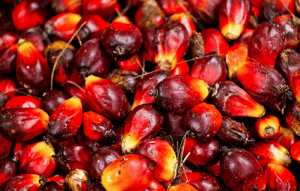Ghana to established oil palm regulatory board soon
 Plans are advanced to give approval to the establishment of a Regulatory Board for the oil Palm sub-sector, Dr Ahmed Yakubu Alhassan, Deputy Minister of Food and Agriculture, has said.
Plans are advanced to give approval to the establishment of a Regulatory Board for the oil Palm sub-sector, Dr Ahmed Yakubu Alhassan, Deputy Minister of Food and Agriculture, has said.
Speaking at Tropical Forest Alliance (TFA) 2020 Palm Oil Initiative second Ghana Country workshop, Dr Alhassan said the Board is necessary to regulate and create a conducive environment for the growth and development of oil palm with benefits to the economy.
Also, the board would create a platform for formalised interaction between government and the private sector to implement policies to ensure the viability of the oil palm industry.
Organised by Proforest, which is leading the Initiative on behalf of Tropical Forest Alliance (TFA) 2020, the day’s workshop was held to review and validate the national Principle’s and Actions for responsible oil palm development in Ghana and agree on implementation framework as well as reconstitute the Ghana Country Core team.
The TFA 2020 is a public–private partnership bringing together companies, governments and civil society with a shared goal of reducing tropical deforestation across the globe.
Its focus is on agricultural commodities such as palm oil, soy, pulp and paper, and beef products, which drive more than 50 per cent of deforestation.
Dr Alhassan said it is important that palm oil refiners, manufacturers and other actors who influence the sector directly and indirectly come together to find ways of reducing the likely negative impacts and increase its benefits.
“We believe this can be done by joining forces with allies who share the same vision and who are ready to forge strategic, mutually beneficial partnerships to work towards set goals,” he said.
He said it is the belief of the Government that the development of oil palm could be done in a more sustainable manner to help reduce the negative impacts.
It is in this direction that the Ministry of Food and Agriculture is collaborating with TFA 2020 to bring together the sub-sector stakeholders to achieve a prosperous oil palm industry and to protect the tropical forests.
Oil Palm is known to have originated in Africa. Its cultivation has hitherto been on a small scale – primarily as village low-yield multi-crop stands.
According to the Roundtable for Sustainable Palm Oil smallholders account for 70 Per cent – 90 percent of oil palm producers in Africa.
Dr Alhassan said the workshop provided the opportunity to plan for roles and contributions into the regional principles for oil palm development that take account of the development plans of the respective countries.
Mr Abraham Baffoe, the Africa Regional Director Proforest, said the workshop was to help plan and agree on the principles and actions to ensure that oil palm development is done well to promote deforestation-free supply chains.
It would also update stakeholders on the progress being made in the focal countries as far as the development of a framework for a set of regional principles for sustainable palm oil in Africa, including a timeline for reaching a regional agreement.
Nine countries are currently engaged in the Africa Palm Oil Initiative, at different stages in the process.
The countries include Ghana, Cameroon, Cote D’Ivoire, Gabon, Liberia and Nigeria are engaged in the Initiative.
Other producer countries are expected to join this first regional workshop, including the Democratic Republic of Congo, the Republic of Congo and Sierra Leone.
Source: GNA
